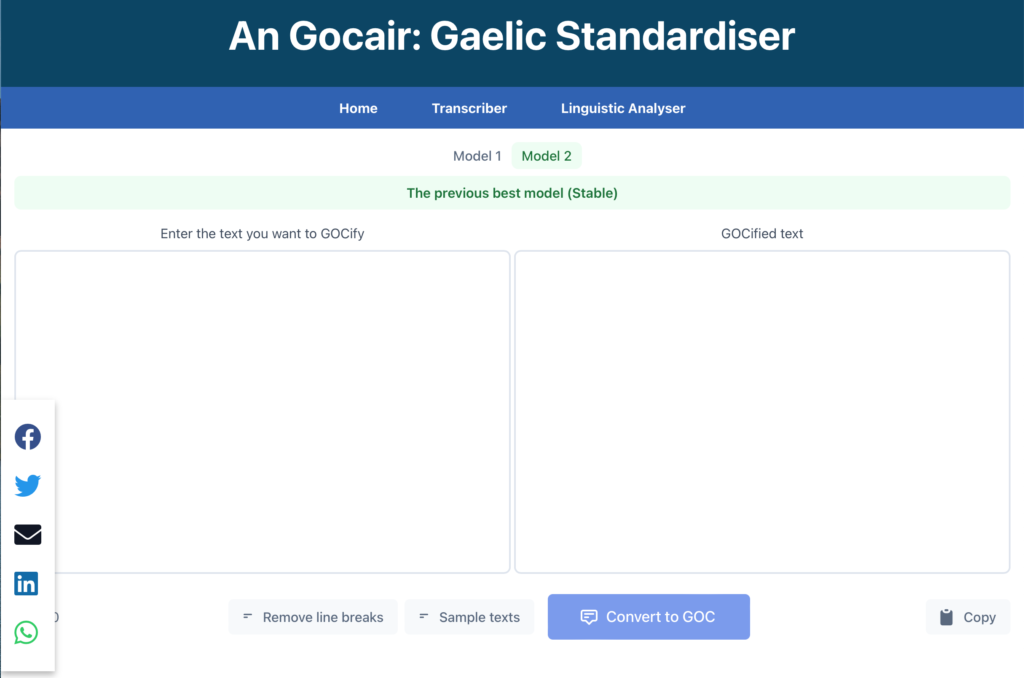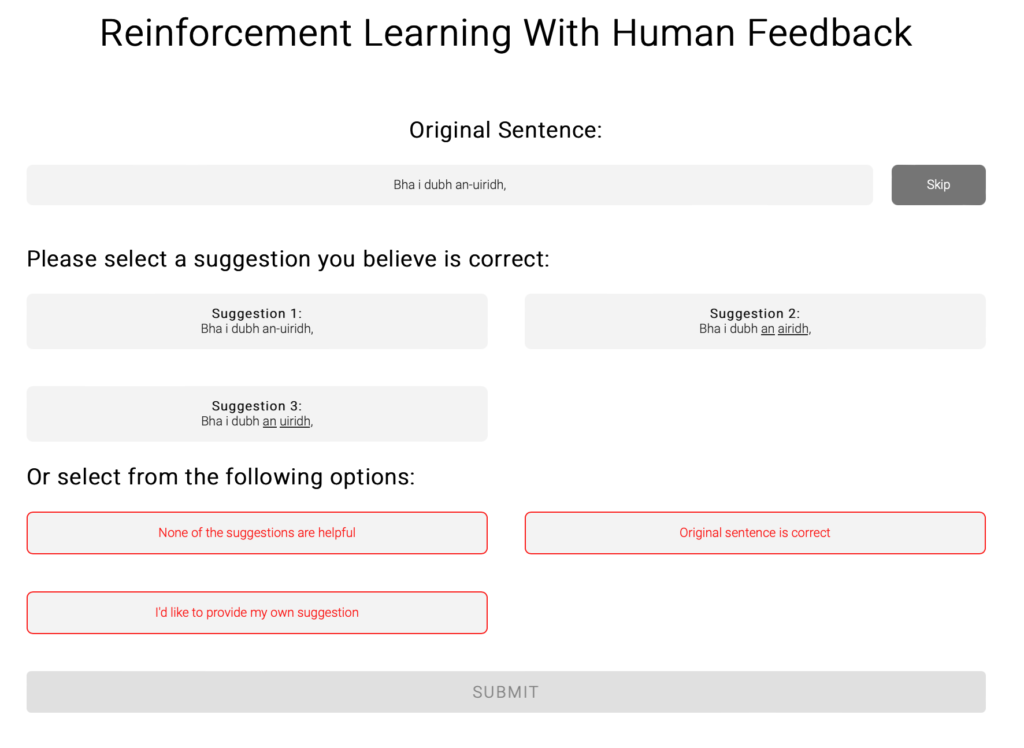In working on the project for the University of Edinburgh, our team from Code Your Future is thrilled to present our project, ‘Crowdsourcing User Judgements for Gaelic Normalisation’. Aimed at Gaelic speakers, this project will collect user inputs on passages of historical Gaelic writing that have been updated to modern orthography by an AI model developed by the University of Edinburgh. Through hard work, collaboration, innovation and problem-solving, we have hugely enhanced a previous research project, ‘An Gocairː An Automatic Gaelic Standardiser’ and not only met but exceeded our goals.

The ‘An Gocair’ Web App
Our team used the PERN stack as it uses a common framework and program language so it can be easily modified to enhance user experience and interactions in the future. In today’s globalised world, it is useful to be able to launch this application from any device and location. We have admin features in our application to give researchers more control over the data, and user sign-in features that allow users to sign in from social media accounts. Throughout the project, there were challenges in terms of adhering to project requirements. Those challenges were an opportunity for us to learn. So we valued our team members’ creativity, experimentation and unique skills to find solutions to the problems that aligned with our project objective.

The Reinforcement Learning with Human Feedback App – for crowdsourcing Gaelic speaker judgements on AI-corrected texts
Our project followed an agile mindset that prioritises interactions, customer collaborations and responsiveness to change. As a result, we adapted agile values and principles focusing on short development cycles like creating simpler tasks, allocating them to the team members and receiving constant feedback from the team lead. Also, the agile approach helped us to manage time efficiently through sprint planning, daily standup meetings and optimising our time allocation and productivity.
By using React we have made every feature into a component so it can be easily modified in the future. By using the Passport module we have made the application more secure. Implementing it into the application was a challenge, however, and took a lot of the time. Before coming up with the passport, we tried a few different authentication tools but they did not give us the ability to be used as login with other social media accounts.
Our project relies on data and the Postgres database management system is useful for storing and managing our data efficiently. Our database Schema design considers scalability in mind to handle a growing dataset and increased user load. We also implemented proper encryption and access control, to protect users’ data and maintain user privacy through admin features.
Authors
Melese Berehannu
https://github.com/Melesegithub
https://linkedin.com/in/melese-berehannu
Appolin Fotso
https://github.com/AppolinFotso
https://linkedin.com/in/appolin-s-fotso-82490b245/
Artem Filkovskyi
https://www.linkedin.com/in/filkovskyi-artem/
Nasir Ali
https://uk.linkedin.com/in/ali-nasir-ali
https://github.com/ali-nasir-ali
